8 Solutions for an Oily Scalp and Dry Ends
Jul 07, 2022 | By Maria Eliza Pineda
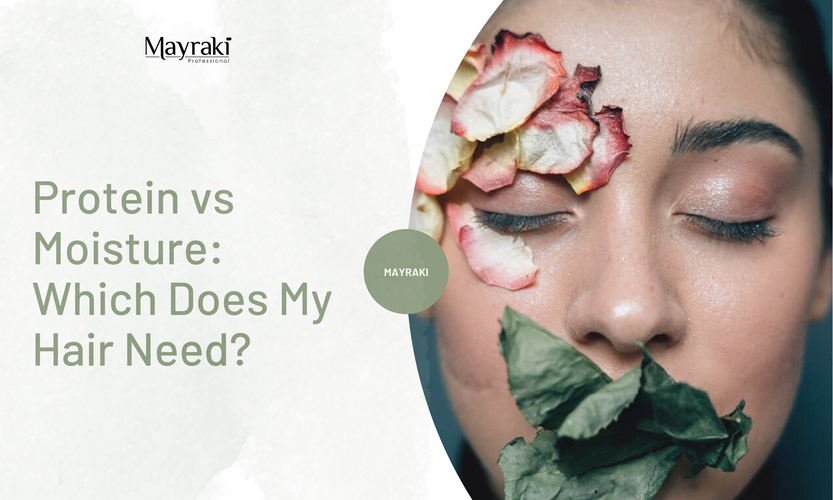
Did you know that you can deal with an overly oily scalp and dry hair at the same time? It’s a pickle, but here are some ways you can restore your hair’s healthy balance.
Your hair is meant to have a healthy balance of moisture to keep it shiny, hydrated, and smooth. When that balance is messed with, that’s when you’ll get an oily scalp, dry hair, or both at the same time. It may seem easier to deal with one problem at a time rather than having both an oily scalp and dry ends, but don’t worry! The solutions to this problem are a lot simpler than you think.
When you have an overly oily scalp and dry ends, this can mean that your hair is not getting the hydration that it needs. Your hair is producing excess sebum to try and compensate for the lack of nutrition and hydration. But the thing is, sebum is not exactly the healthiest way to hydrate hair because an overabundance of it changes its chemical composition making it non-beneficial for both your scalp and your hair. Excess sebum can lead to dandruff, hair loss, and other types of irritation.
To restore the balance in your hair, you need to make sure that it’s getting the right attention. Here are a few ways you can do that.
Check Your Shampoo
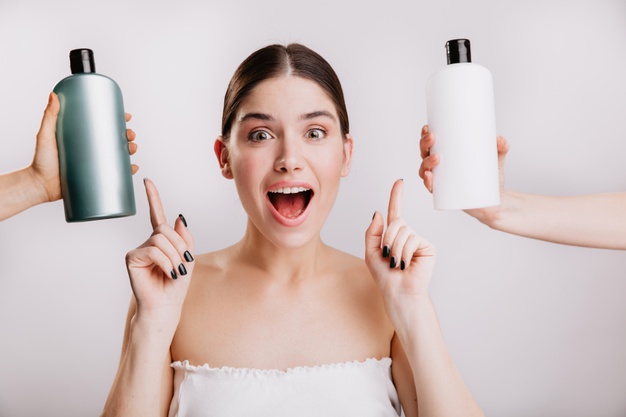
If you’re using a drugstore shampoo, chances are it might have something to do with the overly oily scalp and dry ends. Drugstore and most shampoos usually contain harsh ingredients that make it hard for your hair to naturally moisturize itself. Sulfates are usually the culprit for this. Sulfates are a detergent used in shampoos to thoroughly cleanse the hair of oil and buildup, but it can be quite harsh and drying.
When your hair gets used to sulfates, it’s going to start building up oil, grime, and dirt really easily and rely heavily on sulfates to cleanse it all out. It’s a vicious cycle. So, check your shampoo and if it has sulfates in it, quickly get rid of it.
Use a Good Sulfate-Free Shampoo

Once you’ve gotten rid of your sulfate shampoo, it’s time to switch to a good sulfate-free shampoo. Take note: not all sulfate-free shampoos are created equal. Some are super mild and may not get rid of the buildup in your hair. You need to find a good purifying sulfate-free shampoo like the Mayraki Purifying, Anti-dandruff & Volumizing Amino Acid Shampoo that will still cleanse your hair thoroughly, making it fresh and clean without the harsh ingredients.
There will be an adjustment period once you stop using sulfates, so just let your hair do its thing and restore its balance. With continued use of sulfate-free shampoo, your hair and scalp will start to produce less oil and balance itself out again.
Wash Your Hair Less Often
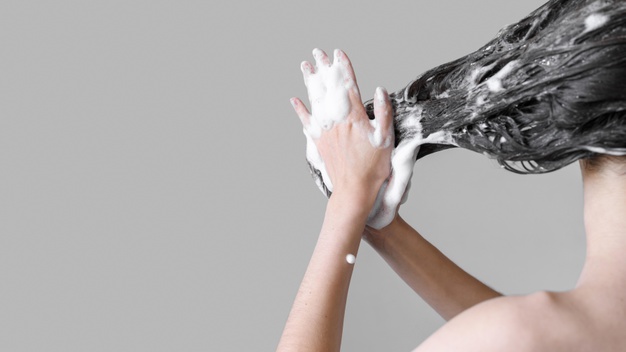
If you wash your hair with a sulfate shampoo and wash it quite frequently, that’s a double whammy for your hair. That means it’s really been stripped of a lot of moisture and gotten used to a harsh routine of being washed frequently with harsh detergents to get rid of buildup.
If you wash your hair more than 3 times a week, lessen it to maybe just a couple of times a week and 3 times a week at most. If your hair is super oily, there will be a bit of an adjustment period. Your hair will probably feel very greasy and dirty before you can proceed with your next washing so bear with it for a while. After your hair gets used to the less frequent washings, it will start to balance itself out again and produce less sebum.
Practice Hair Oiling
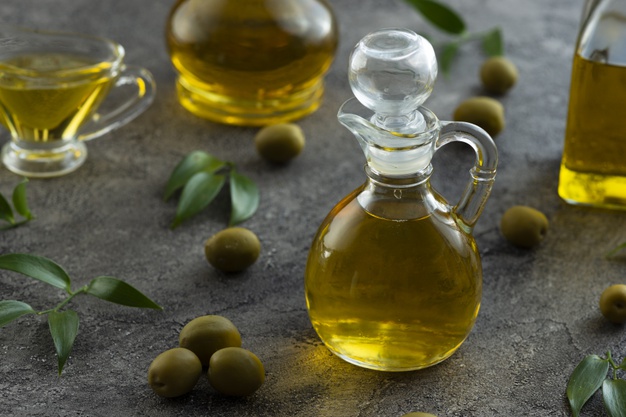
Now let’s deal with those pesky dry ends. Contrary to popular belief, an oily scalp and dry ends are caused by just one problem and that’s dehydration. Nourishing your hair with the right things is very important when it comes to restoring its balance.
Practice hair oiling once a week to hydrate both your ends and your scalp. Choose a good hair oil such as argan oil, coconut oil, or jojoba oil to leave overnight on your hair. These oils contain high amounts of vitamins, minerals, and fatty acids that will moisturize your hair in the best way. Once you start doing this regularly, you’ll notice a big difference in the sebum production and the hydration in your strands.
Get a Hair Repair Treatment
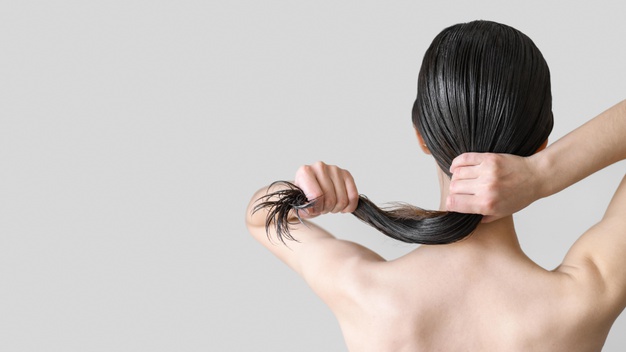
Dry ends are often caused by damage. Whether that is from environmental, heat, or chemical damage, your hair might be in serious need of repair. This can be done with natural remedies, but if you want fast and effective results, you can get a professional treatment like the Mayraki Silky Smooth Proactive Hair Repairing Treatment.
Once your hair gets that intense repair treatment, your ends will significantly improve in texture and become shinier and healthier.
Apply Hair Masks
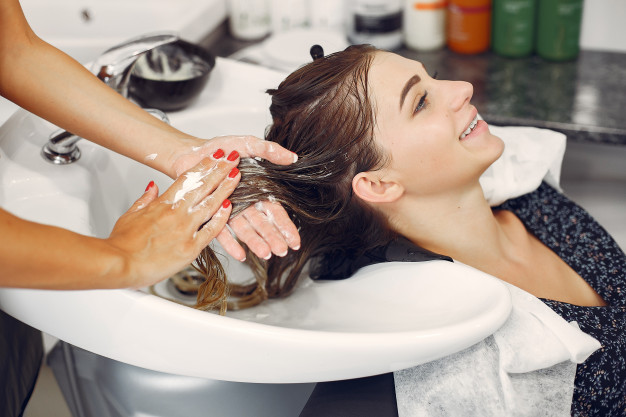
Hair masks are a great way to target dry and split ends specifically. There are a ton of homemade hair mask recipes that you can try out using things that you can find easily in your pantry. A hair mask once or twice a week can help nourish your hair strands and get rid of any split ends.
Protect Your Hair from Friction
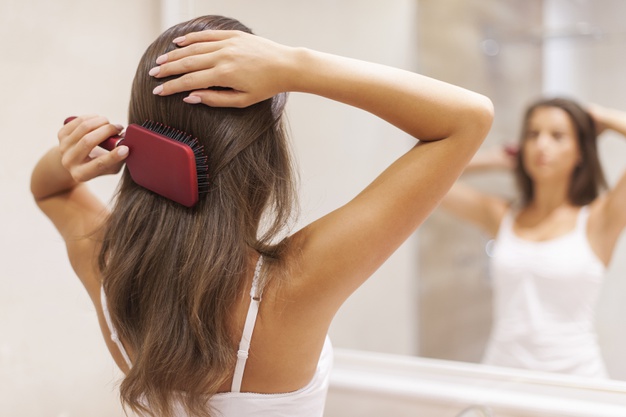
Friction is something that not a lot of us think about but one of the top ways you can damage your hair. Friction can really dry out and frizz up your hair especially if you already have a naturally fine or dry texture.
You can avoid friction by putting your hair in protective styles such as braids, a loose ponytail on top of your head, or a loose updo. You can also change up your cotton pillowcases with something that won’t cause friction such as silk. Furthermore, avoid towel drying your hair with a terry cloth towel, and instead, go with a gentler fabric that won’t cause friction such as microfiber such as the Mayraki Microfiber Hair Towel Wrap.
Get Your Hormones Checked
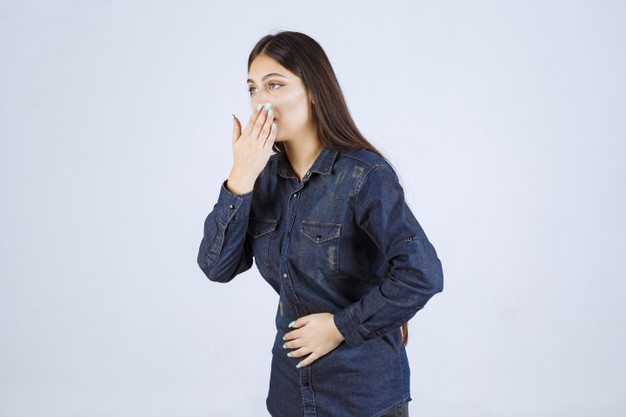
If you’ve tried everything and given all the solutions an ample amount of time to work (a couple of months or so) and your hair still hasn’t improved, it might be time to get your hormones checked out. Oftentimes, sebum overproduction can be a result of a hormonal imbalance or nutritional deficiencies. Consult your doctor about any medication or diet changes that you can do to improve the balance of your hair.
Perfectly Balanced As All Things Should Be
Taking care of your hair is a long and effortful journey, but it is so worth it in the end. Your hair has a natural balance that it needs to get back to if you have overly oily roots but dry ends. To do this, you have to give extra attention to your hair to give it the nutrition it needs. Try out these methods to get back to that perfect balance of nourished hair and a healthy scalp.




